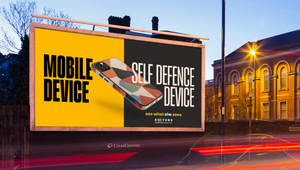
European Workers Consider Themselves Less Creative than Their Global Counterparts

Findings from a Crispin Porter + Bogusky study – run in consultation with Prof Glaveanu of the International Centre for the Cultural Psychology of Creativity – have revealed that Europeans see themselves, and their colleagues, as significantly less creative then their global counterparts. By comparison with those surveyed in the rest of the world, Europeans also value creativity in the workplace less.
The study was commissioned by CP+B London & International CEO, Richard Pinder, to explore the notion of creativity globally, and to analyse what it means to workforces around the world. Pinder commented, “It’s clear that the meaning of Creativity differs significantly depending on where you are in the world, according to various cultural imperatives. Given the recognised role of Creativity in driving economic growth, this finding has significant implications for businesses, economies and societies more generally.”
Other key findings from the study include:
• On the eve of Brexit, the UK shows evidence of a comparative ‘Island mentality’ in the workplace. Those surveyed were asked if they believe people are more creative working alone or together. While overall respondents clearly believe people are more creative when they work together, Europeans scored lowest here with only slightly over half respondents in the UK saying they agree.
• Who Knew? China - a Nation of Creative Individuals: Despite its collectivist culture, the Chinese rank only just behind the U.S. in terms of holding a dominant person-centric view of creativity – i.e. ‘we are all creative’ and ‘we should cultivate our own individual creativity’.
• Popular culture’s depiction of the reified creative genius no longer reflects reality, particularly in BRIC markets: When it came to agreeing with the question: ‘is creativity innate?’ only around half of respondents overall did so, with China, Russia and Brazil showing the lowest scores at 38%, 35% and 25% respectively.
Methodology: The findings in the study report statistically significant differences between countries that can be validated further on larger samples. 806 participants from Brazil, China, Germany, India, Russia, Turkey, the UK and the US were questioned, with roughly 100 participants per country and an even gender distribution. Participants were aged 25-35 and educated to at least high school diploma level.















